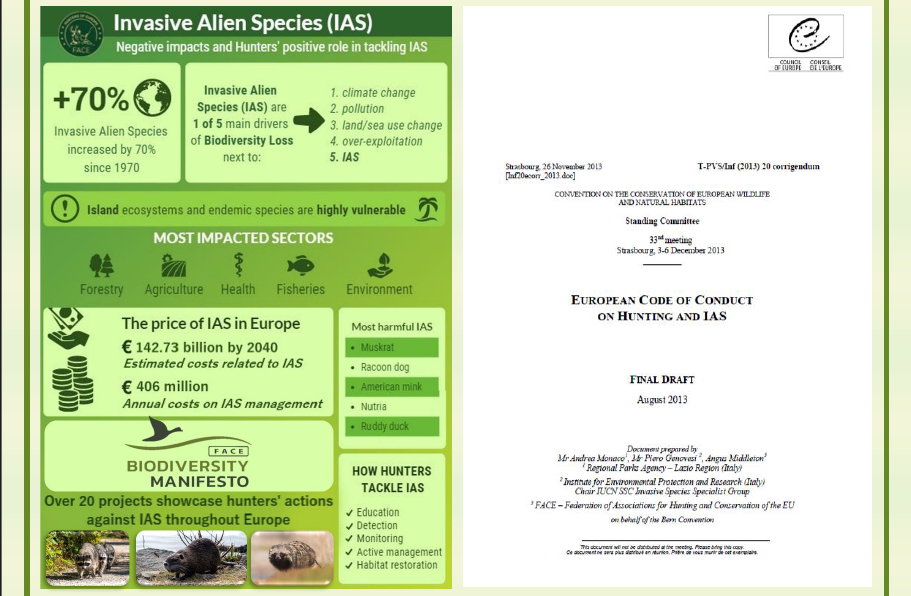
02 Dec 2024 Addressing Invasive Alien Species: The urgent need for enhanced actions
In January 2024, the Intergovernmental Science-Policy Platform on Biodiversity and Ecosystem Services (IPBES) released a report on Invasive Alien Species (IAS) for policymakers. The report warns that IAS are becoming a serious threat to nature, ecosystems, and human well-being. IAS are now one of the top five causes of biodiversity loss, along with land-use changes, overuse of resources, climate change, and pollution. Human activities have brought over 37,000 alien species into new areas, with about 3,500 becoming invasive. These species harm biodiversity by causing species extinctions and making ecosystems more vulnerable.
Prevention, early detection, and rapid response are the most cost-effective strategies for managing IAS. While there have been successful eradication programs, particularly on islands, control measures are more complex in marine environments and connected water systems. The report emphasizes the importance of engaging local stakeholders, including Indigenous peoples and local communities, to ensure that management strategies are effective and sustainable.
However, the IPBES report also highlights the lack of implementation. Many countries include targets for managing biological invasions in their biodiversity strategies, but effective policies are often insufficient or poorly implemented. Challenges arise from differing perceptions, conflicting interests, and limited awareness about the urgency of invasive species threats. These issues, along with data gaps, and inadequate resources, undermine management efforts. Success relies on sustained resources, capacity building, and multi-stakeholder engagement, including effective risk communication and tailored approaches, to improve public acceptance and adoption of management measures.
Voluntary codes of conduct are one way to increase implementation on the ground. While the report recognizes limitations, it emphasises that voluntary codes provide practical guidance for managing associated risks and establishing sustainable practices. In Europe, such codes have been developed amongst others for hunting to complement legislation and promote informed decision-making among hunters. In collaboration with the Bern Convention and IUCN, FACE developed the forward-thinking European Code of Conduct on Hunting and IAS, which was adopted by the Bern Convention Standing Committee in 2013, a year before the adoption of the EU regulation on IAS. These guidelines aim to mitigate the impact of hunting-related activities on the spread of invasive species, ensuring better alignment with EU and Bern Convention regulations. Since 2013, FACE produced every 2nd year implementation reports for the CoC, reporting what actions have been conducted by national hunting associations and the hunting community.
While gaps in IAS implementation persist, hunters can serve as valuable allies in detection, management, and advocacy efforts. Substantial investment in implementation is needed, including sustained funding for prevention, control, and eradication programs. Capacity-building initiatives should target enforcement agencies and stakeholders, ensuring they have the tools and knowledge to act decisively. Government lead awareness campaigns must focus on the importance of IAS management, fostering political and public understanding and civil society support to bridge the gap between policy and practice.
For more information, please read the information note here.


